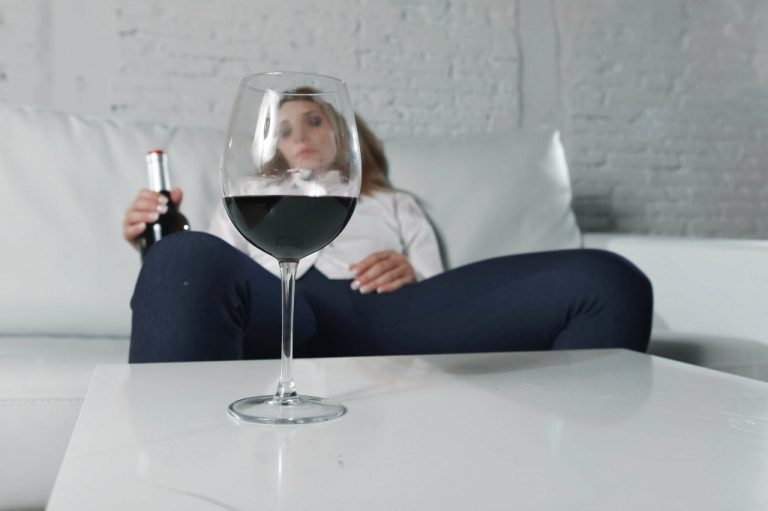If the sun is out, that’s even better — sunshine can trigger the release of serotonin, which can help relieve depression. It’s more likely to worsen negative mood states, along with physical health. You might feel depressed after drinking because alcohol itself is a depressant. Understanding the link between alcohol and depression can help you better manage depression after drinking, or better yet, prevent it from happening in the first place. The more you drink, however, the more likely your emotional state will begin plummeting back down. Sometimes, alcohol can make you feel even worse than you did before.
- “Depression and alcohol misuse are often tied because we take a depressant to counter a chemical depression which only makes it worse.”
- Specifically, ADH converts alcohol into acetaldehyde, which is then converted to carbon dioxide and water.
- People may wish to seek quality psychological care from a doctor, therapist, or both.
- It acts on an inhibitory neurotransmitter known as gamma-aminobutyric acid (GABA).
- There’s also a strong link between serious alcohol use and depression.
- A person should speak with a healthcare professional to learn more about healthy alcohol use.
Factors Contributing to Alcohol Use and Depression
Thesevariables are also major determinants of the timing and peak of the bloodalcohol curve. The effects of absorption, distribution, and elimination combine to produce acharacteristic blood alcohol curve (Figure8). Immediately after a person drinks alcohol, the BAC rises sharplyduring https://suzuki-club.ru/members/73364/ the absorption phase to a maximum that depends on the amountconsumed. Typically, the greatest alcohol concentration is reached45–90 minutes after drinking. BAC then slowly declines due todiffusion of alcohol into the body tissues as part of the distributionphase.
- Susceptibility factors that contribute to alcoholism are genetic,environmental, and psychosocial.
- At the same time, people with depression may attempt to self-medicate with alcohol.
- This approach, known as the Sinclair Method, aims to reduce drinking by having people take naltrexone when consuming alcohol.
- If you tend to rely on alcohol to ease anxiety in social situations, for example, you might never address the underlying causes of your discomfort.
- A combination of alcohol use and depression can create difficulties in treatment.
- Excessive alcohol drinking can also cause problems socially, such as issues with family, school, employment, and friends.
- Excessive drinking can also harm your finances, relationships, and physical and mental health, so it’s important to seek professional care if it becomes a problem.
Why does it feel good to be drunk?
Namely, it interferes with the release of neurotransmitters linked to mood regulation, including serotonin and norepinephrine. Drinking activates the reward system in your brain and triggers dopamine release, so alcohol often seems to have a stimulating effect — at first. Your gut microbiome is a hotbed of bacteria that help keep your digestive http://www.russsia.ru/vse-o-svadbe/svadebnyie-sapozhki-40.html system happy and healthy. The trillions of microbes in your colon and large and small intestines are critical to proper digestion. They also help fend off inflammation and support healthy metabolism. Cirrhosis, on the other hand, is irreversible and can lead to liver failure and liver cancer, even if you abstain from alcohol.
Does Depression Drive You to Drink Alcohol?
- Although the axon of a neuron is extremely close to the dendrites of an adjoiningneuron, they do not touch.
- In this article, learn more about the links between alcohol and depression, as well as when to see a doctor.
- Byproducts of this metabolism are highly reactivecompounds called free radicals.
The risk of depression is greater for older people and those with a history of depression. Get professional help from an online addiction and mental health counselor from BetterHelp. If a person consumes large amounts of alcohol regularly, their tolerance can increase, and the body requires more alcohol to achieve the desired effect. Doctors advise not drinking again within 48 hours of a heavy drinking session, to allow the body to recover. Many of the symptoms are caused by dehydration, but some chemicals in alcoholic drinks can cause a reaction in the blood vessels and the brain that make symptoms worse. Combining alcohol with other depressant-type medications—whether over-the-counter preparations, prescription, or recreational drugs—can have serious effects on the respiratory and central nervous systems.
Stick to moderate drinking

Other depressants can include drugs like Xanax (a benzodiazepine) and a number of opioids. Gabapentinoids like gabapentin and pregabalin are depressants and have anticonvulsant and anxiolytic effects. Most anticonvulsants, like lamotrigine and phenytoin, are depressants. Carbamates, such as meprobamate, are depressants that are similar to barbiturates.

behavior and attention problems
The combined processes of metabolism and excretion that decrease blood alcohol concentration. In a medical context, any substance used in the diagnosis, prevention, treatment, or cure of a disease. In an abuse context, any substance that alters consciousness and may be habit forming. An enzyme found in the liver and stomach that helps break down alcohol into substances that can be excreted from the body.
Cancer risk
In addition,advertisements and media images often present alcohol as a means to success and anenjoyable life. These conflicting messages, combined with misunderstandings andmisinformation, do not help students make responsible decisions about alcoholuse. When you start drinking, booze acts like a stimulant, making you excited and energetic.
Stop drinking if you start to feel bad
If alcohol continues to accumulate in your system, it can destroy cells and, eventually, damage your organs. In 2020, the Substance Abuse and Mental Health Services Administration found https://food.biz.ua/view.php?id=8624&page=&cat=2&subcat=40&subsubcat=0 that half of Americans aged 12 and overused alcohol in the past month. Naltrexone, Acamprosate, and disulfiram are also FDA-approved medications that can help curb alcohol cravings.
